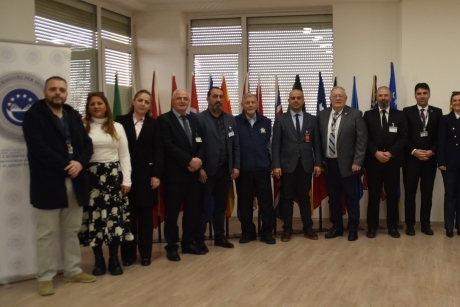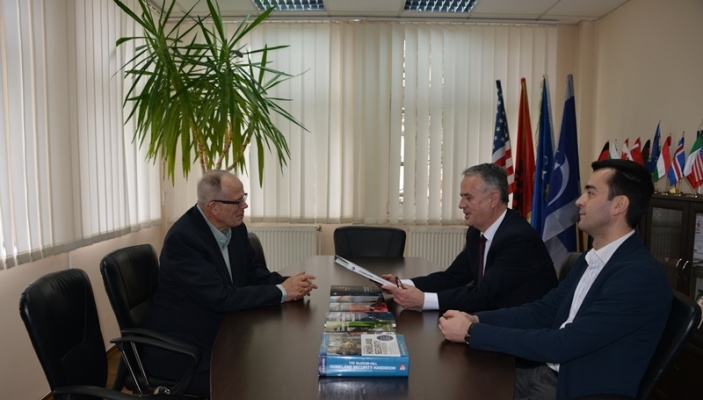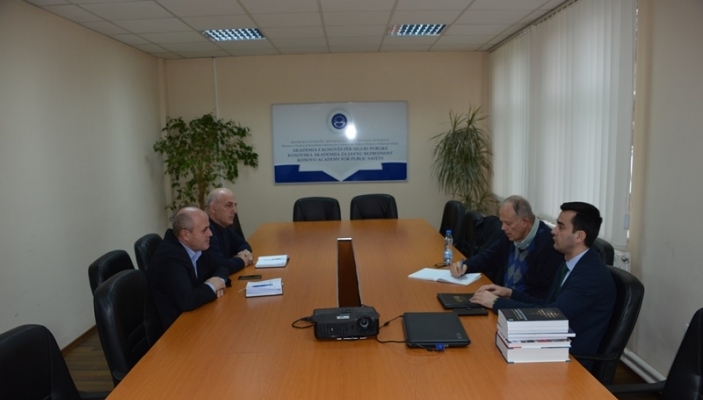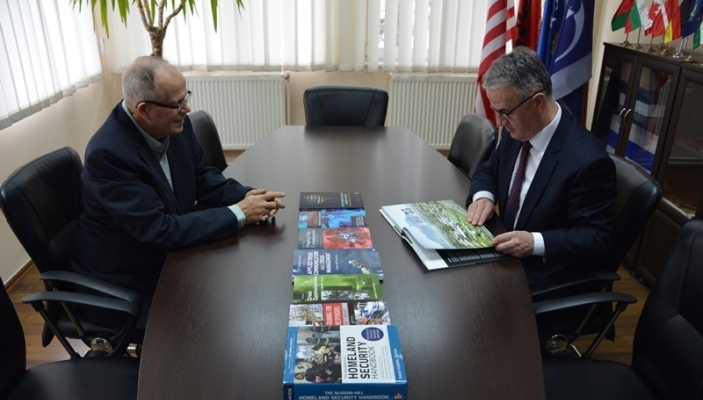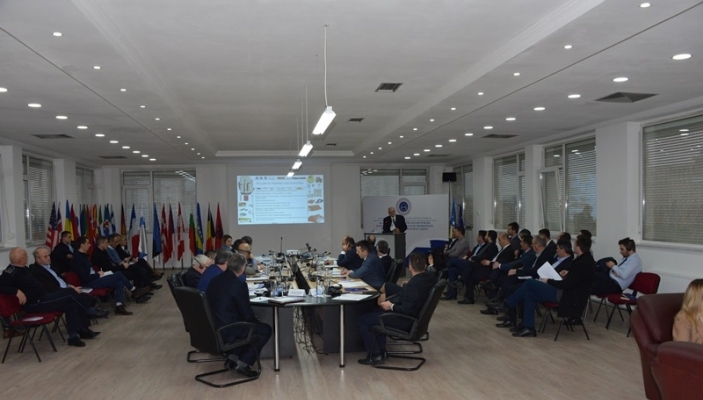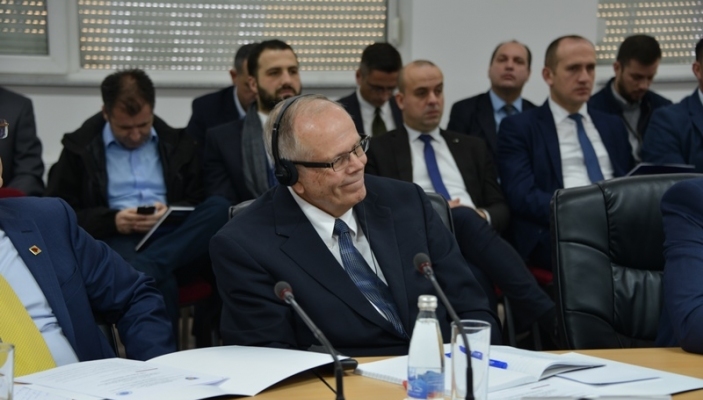Professor Fisher from the Utah Valley University of the United States is visiting KAPS
Vushtrri, February 22nd, 2018. - Professor John Fisher from the Utah Valley University of the United States of America is staying for a study visit to the Kosovo Academy for Public Safety, where he was welcomed by the General Director of the Academy, Ismail Smakiqi. John Fisher, who is also Director of the Institute of Emergency Services and Homeland Security at the Emergency Services Department of the Utah Valley University, within this visit met also academic staff of the Faculty of public Safety and the instructors of the Academy.
Director of Academy Ismail Smakiqi thanked Professor John Fisher for cooperation and also provided support for his study visit. Director Smakiqi also thanked Professor Fisher for his continous contribution and support to the Academy.
Whereas Professor fisher during this meeting donated six books to the Academy about American politics, Crisis Communication and Crisis Management, Training for first responders and the Homeland Security. In this occassion, Fisher expreseed to be ready to further support the Academy.
Talking about the Utah Valley University Program of Public Safety, Fisher said that this program has around 1,500 students, comparing to the overall number of students at the University ëith a total of 35,000 students.
“Offering Public Safety programs in an Academy that is specific to this field is really interesting. Students get to know their other colleagues from Kosovo and they are able to share their experiences in the education. Our students miss this opportunity to get to knoë each-other because the University is so big”, Fisher said.
Within his visit, Professor Fisher took part to the scientific round-table “A decade of the State: Security Challenges in Kosovo”, where he addressed to the participants with the topic “Comparative Study of Crises Communication Planning in South-Eastern Europe and the United States of America”.
Professor Fisher during the meeting with the teaching personnel of the Faculty of Public Safety, of the Academy discussed about teaching approaches on some of the common problems. “Our public safety programs are offered face-to-face and are online. We train neë firefighters and police officers in the face-to-face classrooms, but ëe also teach online leadership to public safety personnel, including police, firefighters and paramedics, partly because they work full time and go to school part time” added Professor Fisher, pointing out the similarities and differences between KAPS and UVU Emergency Services Department educational system.
Talking about the cooperation with the teaching staff of the KAPS Faculty of Public Safety, Professor Fisher mentioned involvement in two projects such are “Comparing Crisis Communication in Kosovo and the United States of America” with the Dean of the Faculty of Public Safety, Bejtush Gashi, and “Social Media Policy in Kosovo and the United States of America” with Professor Ferid Azemi.
Fisher also met with the Integrated Exercises Center (IEC) officers of the Kosovo Emergency Management Agency (EMA), located at the Kosovo Academy for Public Safety, Head Bahri Pajaziti and Senior Officer Iset Lahu. Topics of discussions were training in the fields of firefighting, rescue and emergency management training as well as about revieëing the possibility of adopting to Kosovo conditions and circumstances to conduct a training at KAPS of the Community Emergency Response Team (CERT) of the United States Federal Emergency Management Agency (FEMA), a program that, as he said, educates volunteers about disaster preparedness for the hazards that may impact their area and trains them in basic disaster response skills, such as fire safety, light search and rescue, team organization, and disaster medical operations.
Professor Fisher realized a visit to the Correctional Center in Lipjan, where he met its Director, Heset Loku, and the new juvenile education center. “I was impressed by the programs offered to young offenders”, he said. “Because of the education and counseling they receive, most of them are returning to society and living good and productive lives”, concluded Professor Fisher.


